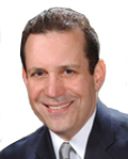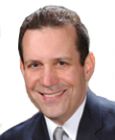Spirituality
Children, Spirituality, and Society
Challenges When Living a Spiritual Life
Posted September 8, 2013

Spirituality is the experience of knowing our True Self and gaining consciousness of our purpose and existence—for many through a search and encounter with God. While current notions of spirituality are sometimes devoid of a God figure, the quest for meaning and encounter for deepening our understanding of the Spirit defines spirituality. Some, however, identify themselves as spiritual simply by observing holy places, saints, ministers or inspirational speakers. This behavior is akin to calling ourselves athletes when we are spectators of a sport. Spiritual life requires participation over observation for the encounter—the spiritual transformation.
Prayer is a powerful medium for awakening consciousness to spiritual realities—for connecting to the God reality. Soren Kierkegaard said that man, who, by definition, is natural, could not know God, who, by definition, is supernatural; yet, he continued, prayer is the medium by which the natural can know the supernatural. Thus prayer provides a medium for our spiritual connection.
While scientists increasingly recognize consciousness as our goal over “physicalism” or materialism (let alone scientists who live spiritually active lives), spirituality is not supported in our educational systems. Some scientists even challenge materialism as an adequate epistemology, yet suspicion often surrounds practicing spirituality as a means for gaining greater consciousness and self-awareness. Challenging the materialistic focus in science, Eugene Wigner, Nobel Prize winner in physics, explained that materialism is not consistent with our current understanding of quantum mechanics, and other physicists agree that the premise that you can describe the whole function of a human being, including his knowledge and his consciousness, is untenable—as something still remains missing.
Attending to the soul and the spirit is too significant a matter to be ignored—as it negates the heart of our existence. As parents we need to awaken our children to their spirit even if this value is denied around them.

When my eldest daughter and son entered pre-school, I recall their earliest report of peer pressure and cultural pressure to deny their spirit, when they were corrected as they waited to pray before beginning their lunch. When my son and daughter asked their teacher about why the class did not pray before lunch, they were told, “We don’t pray at school; you pray at home.”
As my daughter discussed the incident, her brother sadly nodded his head in agreement with what she was saying. I could feel how a void was now forming in their hearts. Although I understood the position of the school, the unfortunate message that they were getting was that our society does not embrace prayer and support spiritual things.
I took this experience as an opportunity to discuss with my children the different beliefs of others and the importance of being true to oneself. While I knew that it would be difficult for my children to pray at meals in their school setting, I also knew that they needed to confront the challenge to express their own beliefs in multicultural society.
A few days later my daughter reopened our conversation at dinner, stating that she still prayed quietly in her heart before lunch. She said that she could close her eyes and felt good that she could thank God. My son chimed in, in his characteristically humorous and innovative way with, “I just say, ‘Thank God,’ out loud, because,” as he put it, “they don’t know that I’m really talking to God when I say that anyway!”
Taking a few moments for prayer before meals has always been a valued tradition in our family. However, the more significant point is recognizing the importance of developing their faith and spiritual growth. Spirituality provides an opportunity to not be absorbed in the many activities where we can lose our self, and to reclaim the capacity that we have—through our spiritual sensibilities—to find our self.
John T. Chirban, Ph.D., Th.D. is a clinical instructor in psychology at Harvard Medical School and author of True Coming of Age: A Dynamic Process That Leads to Emotional Stability, Spiritual Growth, and Meaningful Relationships. For more information please visit www.drchirban.com, https://www.facebook.com/drchirban and https://twitter.com/drjohnchirban.


